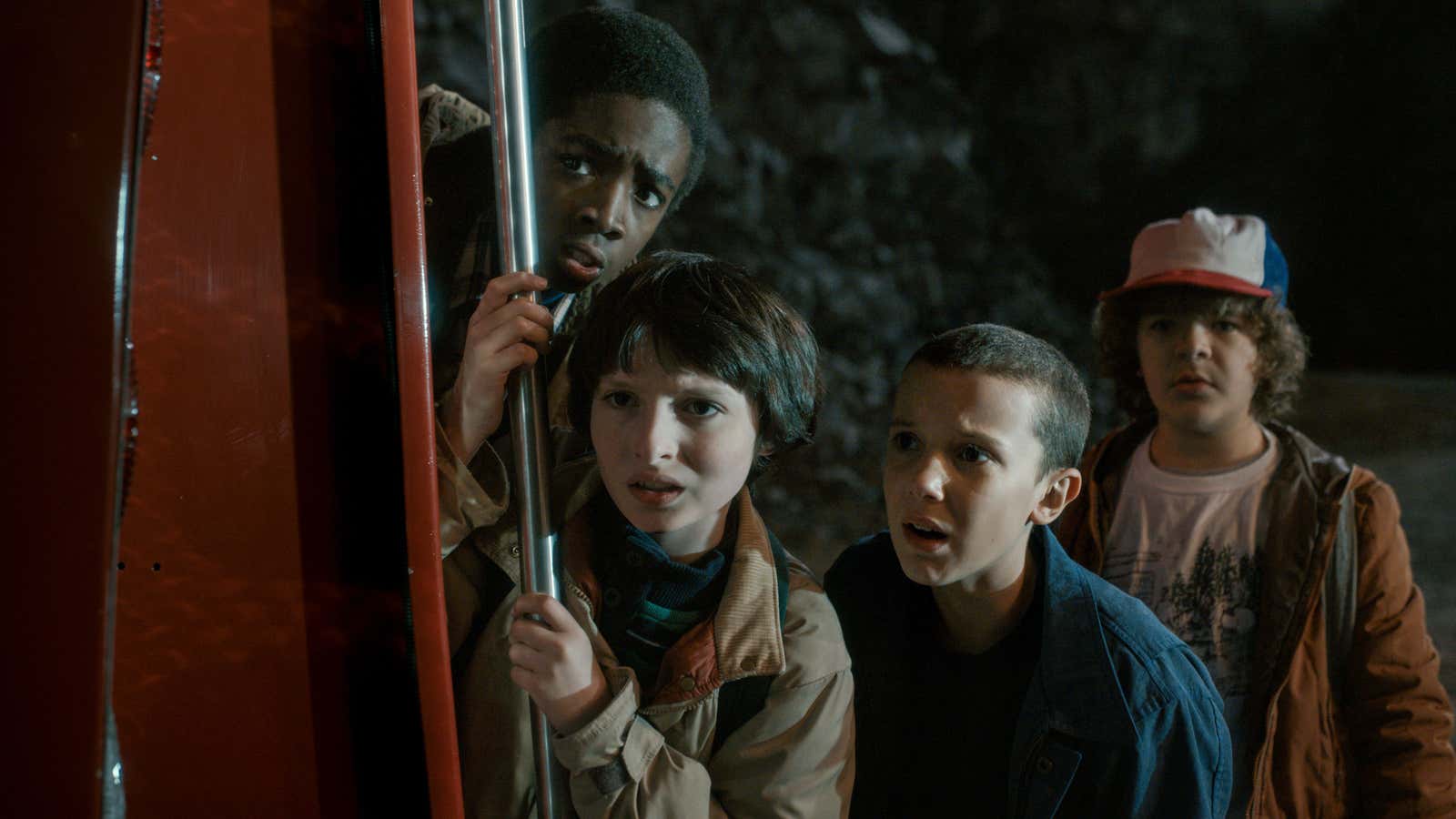Netflix, seeming every bit like the Silicon Valley tech company it is, reportedly has an algorithm that determines how much it should pay for shows and movies.
Documentary filmmaker Craig Atkinson told Business Insider that the company relies on an algorithm to value content. Atkinson was negotiating with Netflix to sell his documentary on the militarization of US law enforcement when his lawyer told him that the company had already determined what the film was worth and wouldn’t budge on its bid.
“During the course of the conversation our lawyer had with the Netflix lawyer, he got a lecture, as he described it, from the Netflix lawyer about the fee because he was pushing back about how it seemed incredibly low for an all-rights deal,” Atkinson told the publication. “The Netflix lawyer lectured him on how it was their algorithm that determined the price of the film and that there’s really no discussion to be had because this algorithm determined how much the film should be worth and that basically was the end of discussion.”
Netflix, however, told Quartz that it does not rely on algorithms to value potential projects. Like other entertainment entities, it looks at things like the talent attached to a project and the audience for a particular genre to estimate how much a film or show might be viewed compared to its cost. Every project, Netflix said, is assessed differently.
Similarly, when determining how cost-efficient a program is, Netflix analyzes its share of viewing relative to its share of the cost budget, and other factors like impact on acquisition, total raw viewing hours, critical acclaim, and awards performance, Spencer Wang, vice president of finance and investor relations at Netflix, said in November, speaking at an RBC Capital Markets conference.
Ultimately, the filmmaker, Atkinson, said his lawyer Jody Simon was able to negotiate an additional $100,000 more than the mid-six figure fee Netflix originally offered, according to Business Insider. But he said he didn’t take the deal because he wanted to retain creative control over the film.
Update (Dec. 28 at 3:30pm ET): This post was updated to include commentary from Netflix, which did not respond to Quartz’s request for comment by initial publication.
